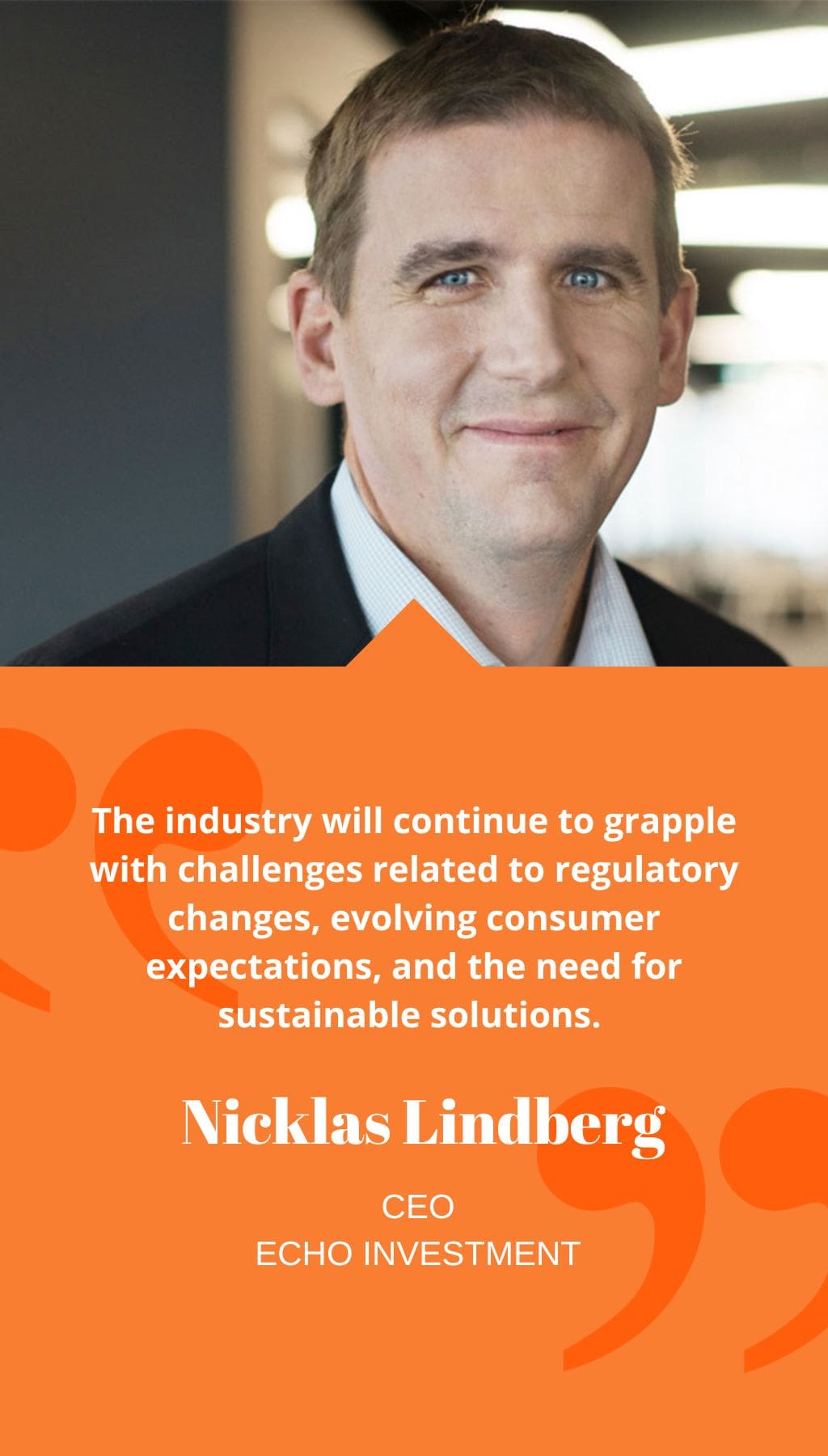
- Poland | 15 February 2021

When you assumed leadership at Echo Investment in 2016, what objectives did you aim to pursue?
After a successful 14-year stint at Skanska in CEE, my primary goal at Echo Investment was profitable growth. I focused on a diversified business model, emphasizing destination projects encompassing residential, offices, retail, hotels, and more. Our recent shift towards multifunctional projects aims not just to construct but also to integrate these developments into the cities, paying homage to their historical significance, such as our Warsaw Brewery project.
Integrating historical buildings into new complexes seems to be a central focus. What efforts are involved in achieving this?
Merging historical structures with modern developments involves collaborating closely with local authorities to preserve cultural heritage while revitalizing forgotten parts of cities. Moreover, integrating ample green spaces into our projects is pivotal, aiming to reintroduce nature into urban landscapes. Our approach revolves around self-sufficiency, ensuring our developments provide comprehensive facilities for residents and businesses.
Reflecting on your current operations, which real estate sector drives the majority of your business, and how do you assess project feasibility?
Presently, we rank among the top three in the Polish office sector, emphasizing innovative solutions for a safe return to work. Offices remain a crucial growth driver for us. Retail is evolving towards food & beverage and events, while residential continues to be a pillar for Echo. We assess project viability based on our investments in specific sectors, aligning projects with demand and client value. Return on investment remains a vital criterion for new ventures.
How did the pandemic impact your operations, considering your diversified approach?
Lockdown posed challenges in obtaining building permits due to digitalization gaps. We navigated initial productivity dips by fostering a sense of safety at construction sites. Diversification helped; we acquired four Tesco shopping center sites, transforming them into multifunctional projects. Expanding our residential sector has been strategic; increased savings during the pandemic led people to invest more in housing.
There’s been a shift towards renting in Poland; what drove this change?
We identified a need for flexibility among younger generations who constantly change residences due to travel and other factors. Our approach provides institutionalized renting with comprehensive facilities, catering to those seeking flexibility but desiring the services and security of institutionalized renting.
What are your ambitions for the next 2-3 years?
Our plan is to maintain office sector strength and expand residential projects significantly. We prioritize agility in our 12-month planning due to market dynamics. Long-term strategies include growing our Resi4Rent portfolio to encompass 10,000 apartments in ongoing and completed projects in the next few years.
Could you share your thoughts on Poland’s real estate market?
Poland remains an attractive investment market with emerging sectors like residential for rent, inviting new players. Echo Investment aims to lead in its segments, continually introducing new ventures into the market while maintaining our position as a market leader.














